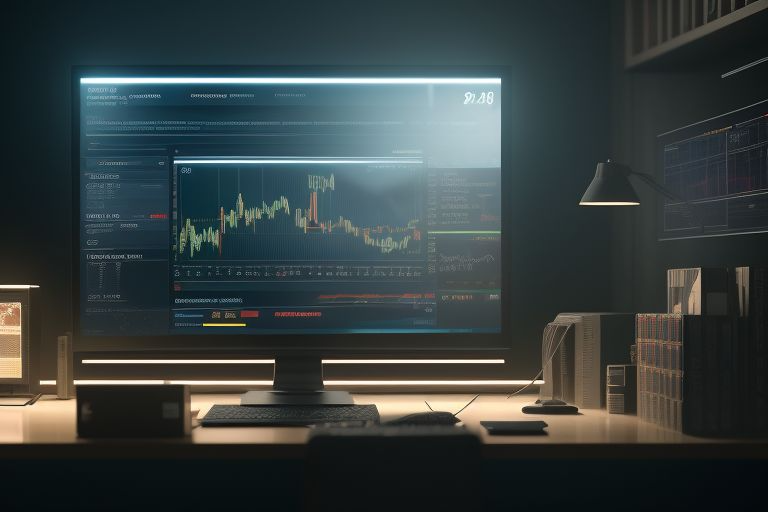Algorithmic trading, or algo trading for short, is the automated execution of trading orders in financial markets, using computer programs and mathematical models that follow predefined rules and strategies. Algo trading can be applied to various types of financial instruments, such as stocks, bonds, currencies, commodities, and derivatives, and across different time horizons, from microseconds to months.
Algo trading has been undergoing rapid and radical changes in recent years, driven by the advances in technology, such as artificial intelligence (AI), machine learning (ML), big data, cloud computing, and blockchain. These technologies have enabled algo traders to develop more sophisticated, efficient, and profitable trading systems, as well as to cope with the challenges and risks of the dynamic and complex market environment. However, these technologies also pose new ethical, social, and regulatory issues, that require careful examination and evaluation.
In this essay, we will critically analyze the benefits and challenges of algo trading, in light of the technological evolution, and discuss the implications and recommendations for the traders, the investors, the regulators, and the society.
Benefits of Algo Trading
Algo trading offers several advantages over traditional or manual trading, such as:
- Speed: Algo trading can process and execute orders much faster than human traders, taking advantage of the slightest market movements and opportunities. Algo trading can also react to market events and signals in real-time, without any delay or hesitation. Speed is especially important for high-frequency trading (HFT), which involves placing thousands or millions of orders per second, to exploit minuscule price differences or arbitrage opportunities.
- Accuracy: Algo trading can eliminate human errors, such as miscalculations, typos, or emotional biases, and ensure that the orders are executed as intended. Algo trading can also reduce the risk of manual intervention or manipulation, by following the predefined trading plan and rules consistently, regardless of the market conditions or the trader’s mood. Accuracy is especially important for complex or multi-leg orders, which involve simultaneous buying and selling of different instruments or markets, to hedge or diversify the portfolio.
- Cost-efficiency: Algo trading can reduce the transaction costs, such as commissions, spreads, and slippage, by optimizing the order size, timing, and routing. Algo trading can also improve the liquidity and efficiency of the market, by providing more supply and demand, and reducing the bid-ask spread. Cost-efficiency is especially important for low-margin or high-volume trading, which involves trading large quantities of instruments or markets, to generate small but consistent profits.
- Consistency: Algo trading can follow the predefined trading plan and rules consistently, regardless of the market conditions or the trader’s mood. Algo trading can also backtest and optimize the trading strategies, using historical or simulated data, to measure and improve the performance and robustness of the trading system. Consistency is especially important for long-term or systematic trading, which involves following a set of rules or indicators, to capture the market trends or patterns.
- Diversification: Algo trading can trade multiple instruments, markets, and strategies simultaneously, increasing the portfolio diversification and risk-adjusted returns. Algo trading can also adapt to different market regimes and scenarios, by switching or combining different trading strategies, to exploit the market opportunities or mitigate the market risks. Diversification is especially important for dynamic or adaptive trading, which involves adjusting the portfolio allocation or exposure, based on the market conditions or the trader’s preferences.
Challenges of Algo Trading
Algo trading also faces several challenges and limitations, such as:
- Complexity: Algo trading requires a high level of technical and financial expertise, as well as a thorough understanding of the market dynamics and regulations. Algo trading involves designing, developing, testing, deploying, and maintaining the trading system, which requires advanced skills and knowledge in programming, mathematics, statistics, economics, and finance. Algo trading also involves analyzing, interpreting, and predicting the market behavior and prices, which requires deep insights and experience in the market structure, mechanism, and factors.
- Competition: Algo trading faces intense competition from other algo traders, who may have access to better technology, data, or strategies, and who may influence the market behavior and prices. Algo trading may also face diminishing returns or losses, as the market becomes more efficient or crowded, and the trading opportunities or edges become more scarce or exploited. Algo trading may also face predatory or hostile actions from other market participants, such as front-running, spoofing, or hacking, which may disrupt or harm the trading system or performance.
- Security: Algo trading is vulnerable to cyberattacks, hacking, or system failures, which may compromise the data, algorithms, or orders, and cause significant losses or damages. Algo trading relies on the security and reliability of the technology, data, and infrastructure, which may be subject to errors, glitches, or breaches. Algo trading also relies on the availability and continuity of the market access and connectivity, which may be subject to disruptions, delays, or outages.
- Ethics: Algo trading raises ethical and social issues, such as the fairness, transparency, and accountability of the algorithms, the impact on the market stability and efficiency, and the distribution of the wealth and power among the market participants. Algo trading may pose moral dilemmas or conflicts of interest, such as the trade-off between profit and social welfare, or the responsibility for the consequences of the trading actions or outcomes. Algo trading may also have unintended or adverse effects on the market or society, such as the amplification of the market volatility or inequality, or the displacement of the human traders or workers.
Implications and Recommendations
Algo trading is a fascinating and fast-growing field, that offers both opportunities and challenges for the traders, the investors, the regulators, and the society. As technology continues to evolve, algo trading will also continue to adapt and innovate, creating new possibilities and paradigms for the financial markets. However, these changes also require careful consideration and evaluation, to ensure that algo trading is conducted in a responsible and sustainable manner, and that the benefits and risks are balanced and shared equitably.
Some of the implications and recommendations for the stakeholders are:
- For the traders: Algo traders should strive to improve their technical and financial skills and knowledge, as well as their market insights and experience, to develop and maintain competitive and profitable trading systems. Algo traders should also adhere to the ethical and professional standards and codes of conduct, and respect the market rules and regulations, to ensure the integrity and reputation of their trading activities and outcomes.
- For the investors: Investors should be aware of the advantages and disadvantages of algo trading, and the potential returns and risks of their investments. Investors should also conduct due diligence and research on the algo traders and their trading systems, and monitor and evaluate their performance and results, to ensure the quality and suitability of their investments.
- For the regulators: Regulators should keep pace with the technological evolution and innovation of algo trading, and update and enforce the market rules and regulations, to ensure the fairness and transparency of the market operations and transactions. Regulators should also monitor and supervise the algo traders and their trading systems, and intervene or sanction them when necessary, to ensure the stability and security of the market and the society.
- For the society: Society should embrace and support the technological evolution and innovation of algo trading, and benefit from the increased market liquidity and efficiency, and the reduced transaction costs and risks. Society should also foster and promote the education and awareness of algo trading, and the participation and inclusion of the diverse and underrepresented groups, to ensure the diversity and equality of the market and the society.
Here are some of the best algo trading tools you can consider:
- Zerodha Streak: Ideal for backtesting, Streak integrates seamlessly with the Zerodha trading platform.
- Upstox Algo Lab: Offers a platform for creating and testing custom algorithms.
- TradeSmart Algo: Provides algorithmic trading solutions for Indian markets.
- 5Paisa Algo Trading: Allows retail traders to automate their strategies.
- Angel Broking Angel Speed Pro Algo: Suitable for experienced traders.
Additionally, here are some international platforms worth exploring:
- Interactive Brokers: A comprehensive platform for various markets and asset classes.
- TradeStation: Offers a proprietary programming language for algorithmic trading.
- QuantConnect: Powerful software for algorithmic trading and backtesting.
- OANDA: Known for its automated trading algorithms with no minimum deposit requirement.
- Cryptohopper: Feature-rich platform specifically designed for crypto trading.
- AvaTrade: Provides a variety of automated trading tools.
- MetaTrader 5: Popular for forex and exchange markets.
- Coinrule: Streamlined platform for crypto algorithmic trading.
Reference:-
Algorithmic trading – Wikipedia

